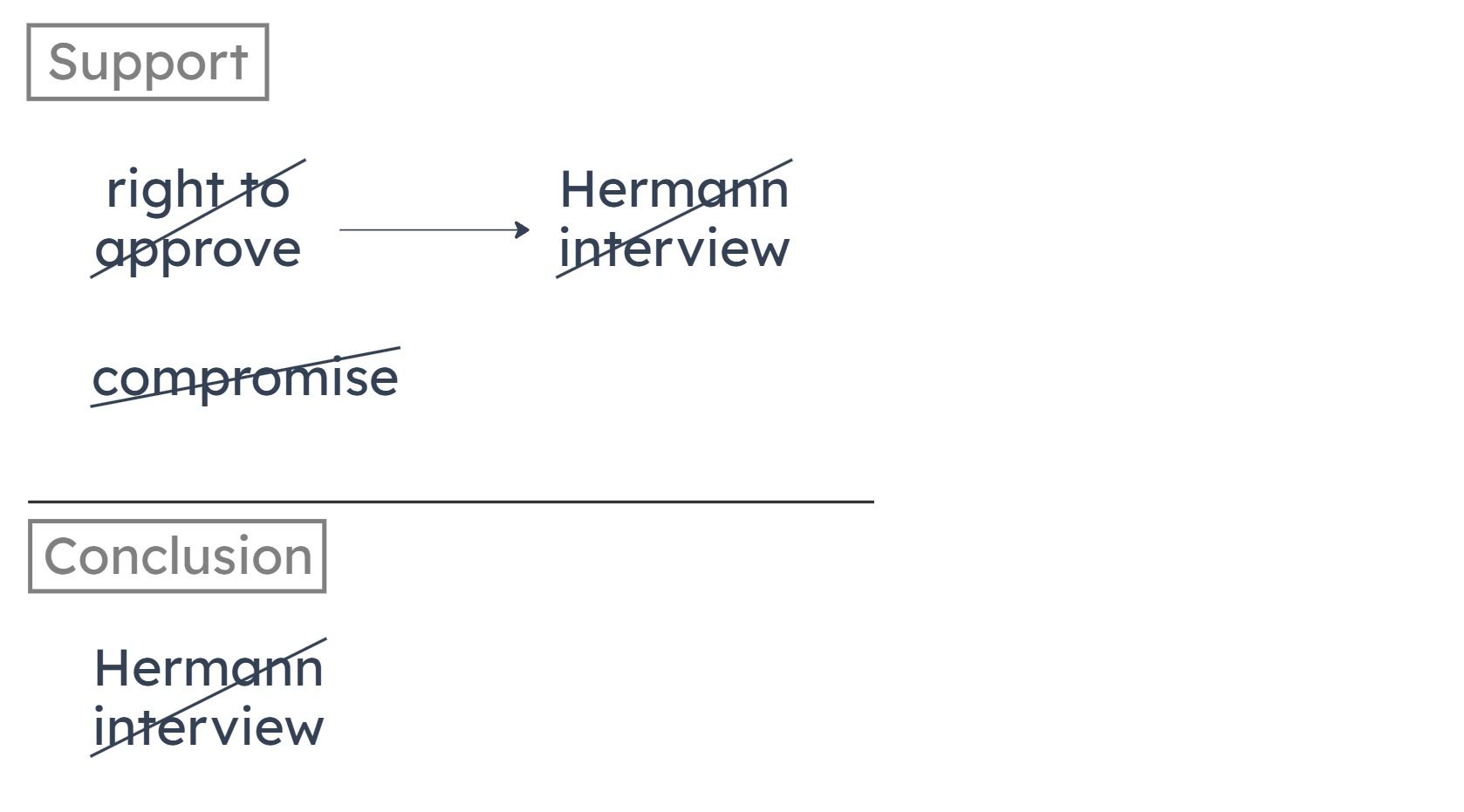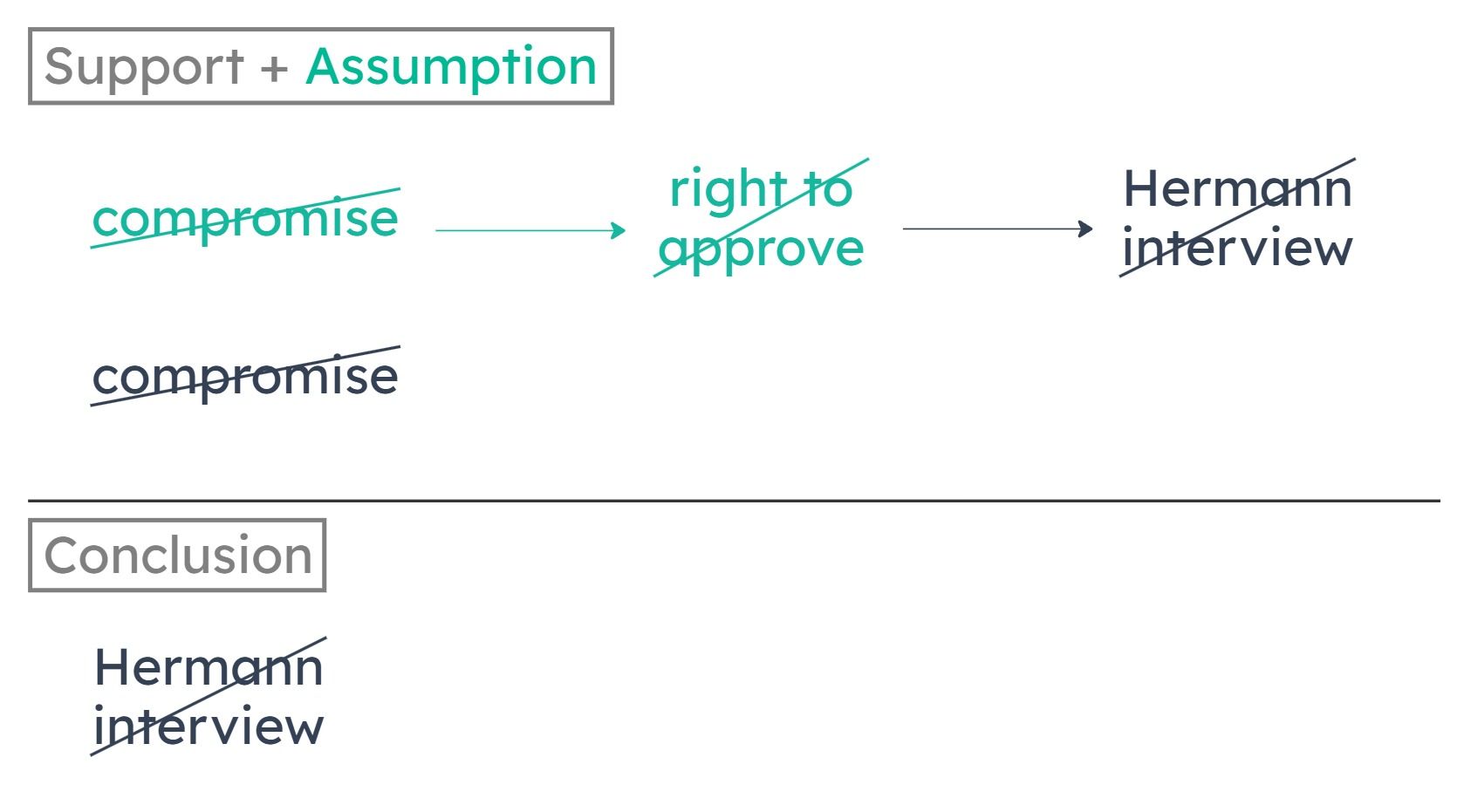The result of attempting to whip cream in a blender is a thick, velvety substance rather than fluffy whipped cream. This is because a blender’s container does not let in enough air to whip cream effectively. Although using a special whipping-cream attachment in a blender can help somewhat, it cannot fully compensate for the container’s poor air intake.
Summary
Whipping cream in a blender results in a thick, velvety substance rather than fluffy whipped cream. This is because a blender’s container does not let in enough air to whip cream effectively. Using a special whipping-cream attachment in a blender can help somewhat, but it cannot fully compensate for the container’s poor air intake.
Notable Valid Inferences
Using a whipping-cream attachment in a blender is not sufficient to whip cream effectively.
A
Cream that has been whipped ineffectively generally becomes a thick, velvety substance rather than fluffy whipped cream.
Could be false. It is possible that cream that has been whipped ineffectively can become a substance that is not thick and velvety. We only know that cream specifically whipped in a blender becomes thick and velvety.
B
The use of a special whipping-cream attachment in a blender does not suffice to whip cream completely effectively.
Must be true. The stimulus tells that although this special attachment can help, the attachment cannot fully compensate for the container’s lack of air intake. Therefore, the special attachment is not sufficient to whip cream completely effectively.
C
When attempting to whip cream in a blender, using a special whipping-cream attachment always produces a fluffier result than could be obtained without using such an attachment.
Could be false. To claim that the attachment always produces a fluffier result is too extreme. The stimulus only tells us that the attachment can help somewhat.
D
The use of a special whipping-cream attachment in a blender can reduce the total amount of air required to whip cream effectively in that blender.
Could be false. We don’t have any information in the stimulus that suggests how the attachment functions. We only know that the attachment cannot fully compensate for the container, but we do not know in what ways the attachment actually compensates.
E
The use of a blender, with or without any special attachments, is not the most common way to attempt to produce whipped cream.
Could be false. To claim this is not the most common way is too extreme. It is possible that using a blender is the most common way, it’s just an ineffective way according to the stimulus.
A
concludes, simply because there is no evidence in favor of a hypothesis, that there is evidence against that hypothesis
B
fails to justify its claim that the view being criticized is inherently implausible
C
reasons that a hypothesis is false simply because there is another hypothesis that is equally likely to be true
D
attempts to derive a conclusion from premises that contradict it
E
grants the truth of claims that are made by the advocates of the hypothesis but that do nothing to strengthen the astronomer’s own argument
A
whether the current methods of disposing of sewage sludge by dumping do environmental damage
B
whether the processes that are used to turn sewage into clean water and sewage sludge have been improved in recent decades
C
whether the cost of producing and using oil from sewage sludge would be economically sustainable
D
whether the burning of oil from sewage sludge would, in contrast to nuclear power production, produce gases that would have a harmful warming effect on climate worldwide
E
whether waste products that would be produced in deriving oil from sewage sludge and burning it would be as dangerous as those produced by the mining and use of nuclear fuel
A
The species of trees that is most common in a forest thrives there because it is best suited to the local climate.
B
Older trees tend to reproduce the least.
C
The study tracked preexisting tree species but did not introduce any new species to the tropical forests.
D
The survival of the trees of the rarer species enables tropical forests to recover more easily from moderate destruction.
E
The trees of the common species have more competition for the resources they need than do the trees of the rare species.
The television star Markus Hermann refuses to grant interviews with newspapers unless he is given the right to approve the article before publication. The Greyburg Messenger newspaper refuses to do anything that its editors believe will compromise their editorial integrity. So the Messenger will not interview Hermann, since _______.
Summary
The author concludes that the Messenger will not interview Hermann. This is based on the fact that the Messenger won’t do anything that its editors believe will compromise their editorial integrity. In addition, in order to interview Hermann, he must be given the right to approve the article before publication.
Missing Connection
We know that if the editors think something will compromise their editorial integrity, the Messenger won’t do it. So to conclude that the Messenger won’t interview Hermann, we want to know that the editors think interviewing Hermann will compromise their editorial integrity, or that they think that what Hermann requires in order to conduct the interview (the right to approve the article before publication) will compromise their editorial integrity.
A
the editors of the Messenger believe that giving an interviewee the right to approve an article before publication would compromise their editorial integrity
(A), in connection with one of the premises, establishes that the Messenger will not grant Hermann the right to approve the article. Then, since Hermann won’t grant an interview unless he is given the right, (A) establishes that Hermann won’t grant the interview.
B
the Messenger has never before given an interviewee the right to approve an article before publication
(B) doesn’t establish that the Messenger won’t grant Hermann the right to pre-publication approval. Just because it’s never happened before doesn’t guarantee that it won’t happen this time.
C
most television stars are willing to grant interviews with the Messenger even if they are not given the right to approve the articles before publication
We know Hermann won’t grant an interview without pre-publication approval rights. What other TV stars do doesn’t matter.
D
Hermann usually requests substantial changes to interview articles before approving them
What Hermann actually does with pre-publication approval rights doesn’t matter. The issue is whether granting him the pre-publication approval rights is something that editors think compromises their editorial integrity.
E
Hermann believes that the Messenger frequently edits interviews in ways that result in unflattering portrayals of the interviewees
What Hermann beleives about Messenger edits doesn’t matter. The issue is whether granting him the pre-publication approval rights is something that editors think compromises their editorial integrity.
A
bases its conclusion on claims that are inconsistent with each other
B
takes for granted that any presentation that is not ineffective is a good presentation
C
bases an endorsement of a product entirely on that product’s popularity
D
fails to consider that a tool might not effectively perform its intended function
E
rejects a claim because of its source rather than its content